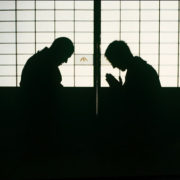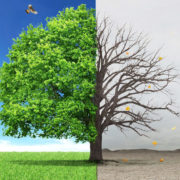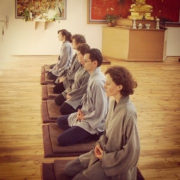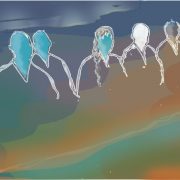So we practice being present, we practice being in this moment, being available in this moment, and we begin to string together the experience of moments of presence. We can talk about that as true “self” and also as the interconnectedness that we have, our interbeing, as Thich Nhat Hanh talks about: The complete connection and oneness that we are with this universe. And that experience is not extraordinary. Everybody—every human being—has that experience. Every day. Many many times a day. We just don’t string those moments together enough to always notice them.
We practice that, and we find out for ourselves, from our own experience, that we are completely connected. Our school Zen master, Bobby Rhodes, once used this example, which I just loved. She held up her two hands and she said “So my right hand is stronger than my left hand. But my right hand never says to my left hand, ‘You’re no good. You’re inadequate. I don’t like you.’” You know. They help each other. They work together. They’re part of the same body.
These experiences of being connected to this universe and to one another, we can build on those, and we can see for ourselves that another person is part of us. That veil that can be so thick between us and others, or us and this moment, can begin to soften and get gauzy, and we get to experience it ourselves. Not as an idea, but actually as a truth. That we’re not separate from the world. Anytime we do anything completely, that’s the case. We practice being present; we practice inquiry into this moment, open-mindedness, openheartedness, to this moment of our life and bring that into even the places where that’s hard to do. Those places where we feel the fear, where we feel the shame, where we feel separate, where we believe we are separate. We practice so that we can bring that very inquiry and openness to those places allowing our true nature to function with less hindrance.
–By Nancy Brown Hedgpeth JDPSN










